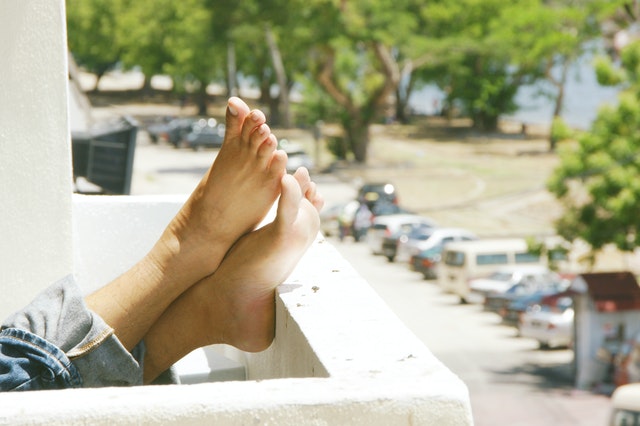Did you know that Raynaud’s Syndrome affects almost 5% of the US population? Most people don’t get treatment for the condition either.
Although “cold feet” can refer to the nerves someone gets before they get married, it can also literally mean having cold feet! Many people have feet that are cold to them, cold to the touch, or both.
You might have cold feet from time to time, but if your feet are cold consistently, it may be due to an underlying problem or condition.
Are your feet always cold? If so, keep reading to learn about some of the other main reasons, aside from Raynaud’s Syndrome, that your feet may be cold (and what you can do about it).
1. Diabetes
Diabetes, both type 1 and type 2, can cause cold feet to the touch. The feet can also get cold due to nerve damage, which is a sign of more severe diabetes that isn’t being properly monitored or treated.
Other symptoms that may make it more likely that the cold feet are caused by diabetes include numbness or tingling sensations in the feet. It’s important to check your feet thoroughly for cuts or wounds (as you may not be able to feel them), and speak with a doctor if you think that you may have diabetes.
2. Poor Circulation
This is one of the more common reasons that you may have cold feet. There simply isn’t enough blood getting to your feet to keep them up to temperature with the rest of your body.
Poor circulation can come from genetics, but it can also be the result of certain heart conditions, smoking, or a sedentary lifestyle.
If you smoke and have cold feet, quitting may be the best option to get your circulation back up to normal levels. Alternatively, if you have a sedentary job, you may want to consider getting an activity watch to remind you to stand and move around frequently to avoid cold feet.
You can also talk to your doctor if you think you have poor circulation, but you aren’t sure why. There are numerous medical conditions that can cause your blood to have trouble circulating to all parts of the body.
3. Anemia
Anemia is the result of not having enough red blood cells. If you have severe anemia, it’s likely that your body isn’t going to circulate enough red blood cells to reach all parts of the body, and you’ll have cold feet as a result.
Iron-deficiency anemia, which is common in women, is one type of anemia that is quite common. Other types include sickle cell anemia, aplastic anemia, and thalassemia.
If you think you may be anemic, it’s important to talk to your doctor about what you can do. Some types of anemia can be treated and reversed.
4. Hypothyroidism
If your thyroid is underactive and isn’t making enough of the thyroid hormone, you have hypothyroidism. This condition impacts the metabolism, which as a result, impacts the body’s heat and heartbeat.
These changes can make a person cold due to the decrease in blood circulation and overall body temperature.
You might feel tired and gain weight if you have hypothyroidism as well. If you have any reason to suspect you may have this condition, rest assured that a visit to the doctor can help you find the right form of treatment.
5. Peripheral Artery Disease
Peripheral artery disease is when the arteries get narrowed and cause blockage of blood flow. This results in your blood not being able to circulate to the feet or legs, which may make them cold.
You may experience leg pain as an indicator of peripheral artery disease, but there are also patients that have no symptoms other than cold feet. Risk factors, like diabetes, obesity, advanced age, or a family history of peripheral artery disease, should be regarded if you think you may have this condition.
You can check out modernvascular.com to learn more about peripheral artery disease and what you should talk with your doctor about. This is a condition that will not go away on its own, so speaking with a professional is essential to get the help you need.
6. Pregnancy
Hormone levels during pregnancy can change drastically, and this may impact the autonomic nerve system, which affects blood flow to the lower regions of the body. As a result, you may not get the blood flow your legs and feet need to stay warm.
A higher basal metabolic rate during pregnancy can also make the air around a pregnant woman feel colder in general because the base body temperature is higher, so the feet will naturally feel cold.
Changes in the nitrogen balance and thyroid conditions related to the pregnancy can cause colder feet as well.
You can talk to your obstetrician about the symptoms you’re experiencing to get some treatment options and simple remedies that may make you more comfortable during pregnancy.
Are Your Feet Always Cold?
Having your feet always cold is an annoying problem, but it can also indicate a more severe issue that needs medical attention. If you’re dealing with cold hands and feet, you should talk to your doctor about the symptoms to see if there is more to the situation than meets the eye.
They will know what questions to ask, what symptoms to look for, and what tests to run to get to the root of the problem.
If you felt like this article was helpful, be sure to take a look at some of the other health-related content we have on the site next.










